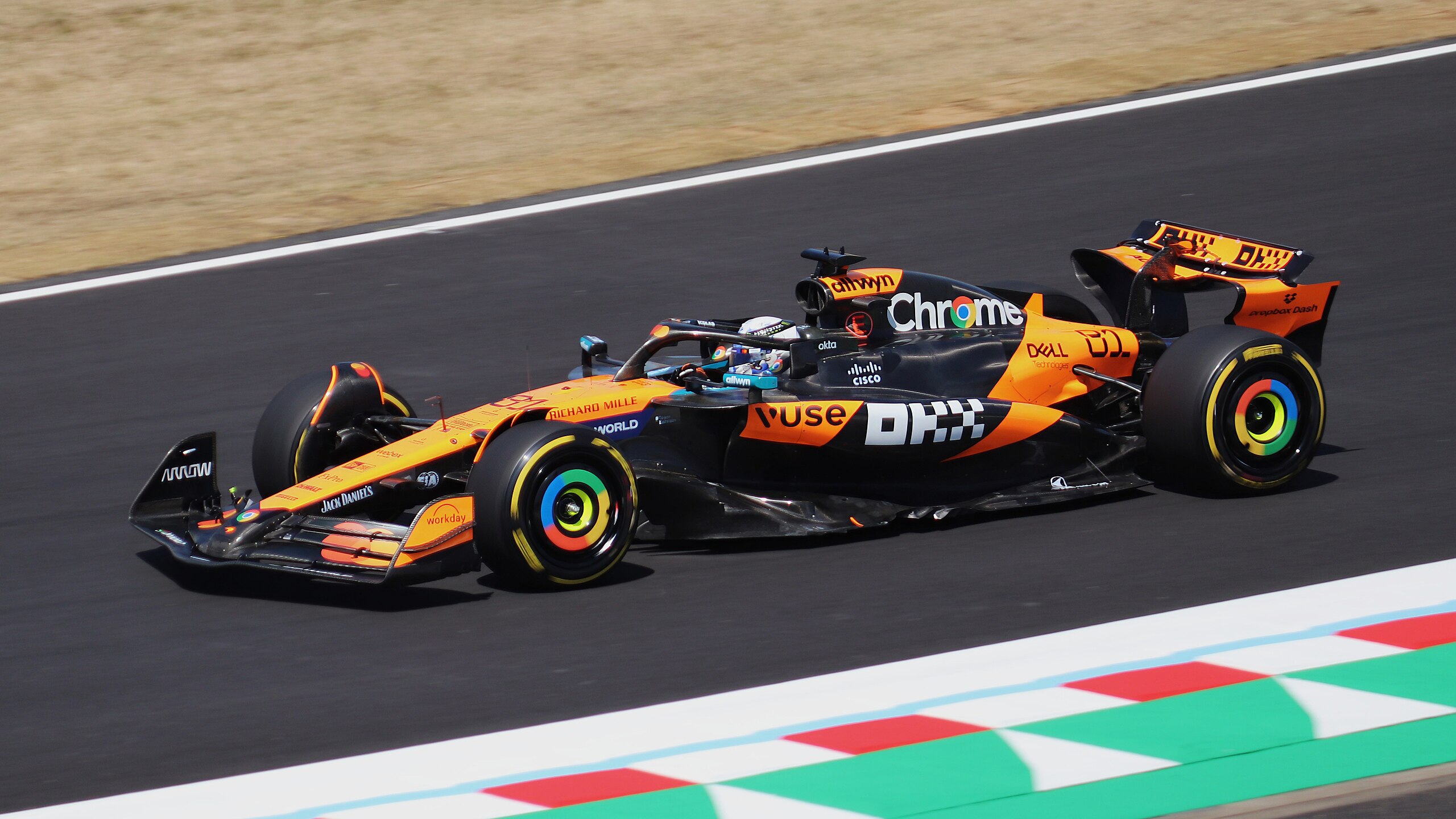Are you willing to sponsor?
Are you ready to explore the transformative power of athlete sponsorship for your brand? Click here to learn more about how sponsorship can help brands grow and thrive in the exciting world of motorsports.
By Abhishek S. Karumathil| Posted March 22, 2024 | In Sport Sponsorship, Sports Marketing
When was the last time you heard “eco-friendly” and “Motorsports” together in a single statement? Probably not too long ago; but this was not the case a few decades ago. It is only in the recent past that the notion of ‘environmental sustainability’ cropped up. The reason being simple: climate change.
With the entire transportation industry looking to shift towards ‘greener’ options, Motorsports would not stay unaffected. In fact, a lot of automotive manufacturers, and motorsport governing bodies (FIA/FIM) are at the forefront, leading the charge. This has led to the advent of new racing series such as ‘Formula E’ and ‘Extreme E.’
Power units are gradually turning into hybrid engines and are using fossil-free fuels to generate power, whereas in other cases the entire powertrain is electric. Another possibility would be ‘Green Hydrogen’ that is, Hydrogen produced from Renewable sources of energy. Only time will tell which powertrain would be the most efficient, and what better way to test it other than racing. Formula 1 is going to be powered by e-fuels starting from 2026, and a similar shift will be observed in MotoGP starting from 2027. Looking at the industry trend, it is clear that some manufacturers want to go the ‘electric’ way, while others have kept their options open. (Note: E-fuels/ synthetic fuels are made using CO2 captured from the atmosphere.)
Even the rubber used in tyres are now being sourced ‘ethically’ and with higher percentages of recycled materials. As per statistics, 2% of the global waste is used-tyres which points to how resource heavy is tyre manufacturing. Tyre manufacturers are testing their products in real world settings under extreme conditions of motorsports. For example, Hankook provides the tyres for Formula E racing and has an entire range of tyres for commercial EV vehicles. This is a great strategy for tyre manufacturers to market their products with results to back it up.
 One other major contributor of C02 is the logistics of motorsport. Since most of the racing series are global in nature, a lot of fossil fuel is burnt to transport materials and humans from one destination to the other. There are some options in place to mitigate this is through carbon credits. But, in my opinion, that is not a fool-proof way to cut down harmful emissions. The aviation industry has started to use sustainable fuels to power their aircrafts which will further reduce the emissions. On a very similar level, starting this year the fuel used in the MotoGP World Championship is non-fossil for an impressive 40%.
One other major contributor of C02 is the logistics of motorsport. Since most of the racing series are global in nature, a lot of fossil fuel is burnt to transport materials and humans from one destination to the other. There are some options in place to mitigate this is through carbon credits. But, in my opinion, that is not a fool-proof way to cut down harmful emissions. The aviation industry has started to use sustainable fuels to power their aircrafts which will further reduce the emissions. On a very similar level, starting this year the fuel used in the MotoGP World Championship is non-fossil for an impressive 40%.
Now coming onto the most important stakeholder of any motorsport event – the fans. It goes without saying that fans are also responsible in contributing to the carbon emissions. Some of these fans offset their carbon emissions by opting for sustainable transport.
I would say that the future of motorsports globally is bright because there is a lot being done to keep the sport relevant.
2024 is going to be the last season for Extreme E series as it is going to transform to Extreme H from 2025 onwards. Extreme H is going to be the first FIA approved Hydrogen powered off-road racing series which is heavily backed by NEOM. The cars are already undergoing testing and it would be a technological marvel to see them racing because storing Hydrogen is complicated. Following in the footsteps of Extreme E, Extreme H is based around a newly designed spec car developed by Spark Racing Technology. This will be powered by a Hydrogen Fuel Cell that will produce the same power-to-weight ratio as the current Extreme E Odyssey 21 machine. Another step being made in the right direction is Formula G. It is the brainchild of former Mahindra Racing chief Mr. Dilbagh Gill, and has been designed as a feeder series to Formula E.
Up until now, we spoke about ‘green’ power units, now let us talk about the materials used to manufacture these cars. It is widely known that most race cars are built from Carbon-fiber reinforced plastic, but what people are unaware of is its effect on the environment. It is going to become crucial for manufacturers to justify the materials they use to manufacture these cars. BComp is one of the few companies that offer natural-fiber reinforced plastics. It is touted as the next big breakthrough in the world of composites.
To summarize this article, I feel that Motorsport is a long way away from its sustainability goals, but it is not an unsurmountable challenge. In fact it is a great business opportunity waiting to be exploited.
Are you ready to explore the transformative power of athlete sponsorship for your brand? Click here to learn more about how sponsorship can help brands grow and thrive in the exciting world of motorsports.
The online platform where you can discover the latest trends, strategies and insights from the exciting world of sports marketing.
View our blog
July 1, 2025
In the complex and exciting world of Formula 1, performance no longer belongs exclusively to wind tunnels and race strategies. It also unfolds in boardrooms, brand labs, and experiential mark[...]
Read More
June 18, 2025
When you think of sports, what comes to mind? For many, the answer is sports marketing management. We see Super Bowl or Olympic commercials and it seems like every other product is marketed t[...]
Read More
May 6, 2025
Motorsport sponsorship has long been perceived as the domain of corporate giants, with multinationals like Shell, Red Bull, and Petronas dominating the paddock. However, in recent years, a ne[...]
Read MoreIn an era where it is possible to get anywhere with a click, there is a strong temptation to approach teams and properties directly for sponsorship projects.
By doing so, we are convinced that we are shortening the value chain, saving time and money. However, these DYI methods are anything but risk-free and what initially appears to be a competitive advantage soon turns into a problem that is difficult to resolve. That’s why there are agencies. And this is why you should rely on us for your sponsorships.
When first approaching a sponsorship or sports marketing project, it is difficult to know immediately which stakeholders are correct, what the decision flow is, and what the right timelines are for each process. Sports is a very specialized field of action, and fitting effectively into its paths can take a lot of time and therefore money. We, on the other hand, know referents and spheres of action and know who to talk to, when and how. So you are also more effective.
Sports is an immense passion, and for our heart colors we would be willing to do anything. But business is a different business, and it is important to make the best possible strategic decisions based on independent research, statistics and reliable data. A sports marketing and sports sponsorship agency like RTR has an objective, 360-degree picture of the scenario and can tell you what is really best for you: which sport, which athlete, which team. This is because we possess a great deal of data and information on ratings, segmentation and attitudes. Because the numbers don’t lie. Never.
Activations are the real heart of sports sponsorship. Without them, there remains only a blank sticker on a motorcycle, car or uniform and no contact with the public, no emotional connection, no impact on the bottom line. Then how do you do it? It certainly won’t be the teams or the athletes who will help you leverage sponsorship and enjoy the many marketing rights you have paid for. To bring out the best in a sports marketing project you need an agency that knows how to use sponsorship to engage the fanbase on the Web, to reach out to Shopping Centers, to organize hospitality, to develop B2B and B2C opportunities, and to get “your” athletes in front of millions of potential consumers.
Would you ever go to the dealer who sold you the car and ask if the competitor’s car is better? No, of course. So, how do you expect to get firm measurements of the effectiveness of your sponsorship if you do not rely on someone super partes? At RTR, we have always worked with independent third-party agencies that allow us to know the return on any exposure of your brand on TV and in the media. In addition, we believe in calculating ROI as the ultimate measure of your success-so we can tell you for every penny you spend how much you are making.
We have been involved in sports sponsorship and sports marketing for more than 15 years. We are consultants in the sense that our goal is to maximize your investment, but we are also an agency that manages the project from start to finish. We have been doing this since 1995 with passion and professionalism, following three principles that have become cornerstones of our business: independence, verticality and transparency.
I would like to highlight the fact that one of the qualities of RTR is its great ability to approach the sponsorship scenario strategically, together with its passionate attitude, its amazing enthusiasm for solving problems, and its high level of professionalism.
Gianluca Degliesposti
Executive Director Server&Storage EMEA
Eurosport is truly delighted with its business relationship with Riccardo Tafà, who has become extremely popular, thanks to his detailed knowledge of the sports marketing sector and his highly diligent attitude to work.
Francois Ribeiro
Commercial Director
Passion and Expertise are the features that I have found in RTR since the very beginning. Serious and reliable professionals but also very helpful, nice and open-mind people, willing to listen and compare different ideas. All the values in which RTR believes make this agency a partner, not just a supplier, a partner with whom we have had the opportunity to achieve significant commercial results in term of success and image.
Luca Pacitto
Head of Communication
We have been working with RTR Sports Marketing for over 10 years. The objectives and the programmes of collaboration continue to be renewed and to grow with mutual satisfaction. I believe RTR is a team of great professionals led by Riccardo Tafà, who I consider a manager of exceptional skills and with a great passion for his work.
Lucio Cecchinello
Team Principal
I have known and worked with Riccardo Tafà since 1995 when we collaborated for the first time on a project for the Williams Formula 1 team. Several clients followed. After leaving Williams to work for Gerhard Berger then owner of the Toro Rosso F1 Team, I turned again to Riccardo to seek his help in finding a tool supplier for the team and Riccardo duly obliged with an introduction to USAG, a partnership with Toro Rosso which endured for five years. I recently started a new role as Group Commercial Director for the renowned Andretti Autosport organisation and I find myself working with Riccardo once again on a number of interesting projects. Why has this relationship with Riccardo endured ? He’s smart, knows the commercial side of sport inside out and back to front and he’s honest and trustworthy. Riccardo Tafà is a “doer” not a “talker”: in over 20 years I have never had a dispute either with him or with a company that he has introduced and each partnership introduced by Riccardo has delivered quantifiable ROI to rights holder and sponsor alike. I can think of no better testimonial of Riccardo’s diligence, knowledge, contact base and hard work than that.
Jim Wright
Group Commercial Director
The online platform where you can discover the latest trends, strategies and insights from the exciting world of sports marketing.
View our blog
July 1, 2025
In the complex and exciting world of Formula 1, performance no longer belongs exclusively to wind tunnels and race strategies. It also unfolds in boardrooms, brand labs, and experiential mark[...]
Read More
June 26, 2025
The European Commission has provided Liberty Media Corporation with unconditional approval to complete the acquisition of the MotoGP World Championship. The process of annexing the top motorc[...]
Read More
June 18, 2025
When you think of sports, what comes to mind? For many, the answer is sports marketing management. We see Super Bowl or Olympic commercials and it seems like every other product is marketed t[...]
Read More